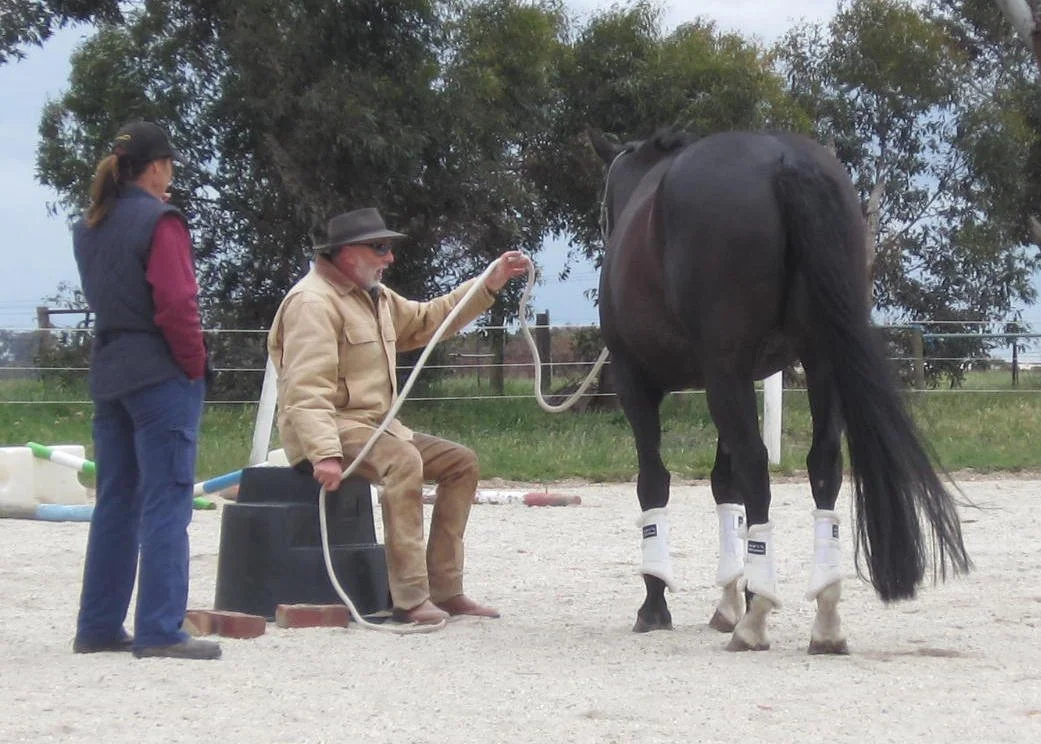A lady came to a clinic that had never been to one of my clinics before. I asked her what she would like the most help with or what issues are giving them their biggest headache. She was a little unsure what the answer should be, except that she wanted to start with groundwork. I suggested that she work her horse as if she were at home and nobody was watching, and I would watch and see what came up.
The owner had obviously had some education in groundwork and started to move her horse around. She asked for a circle, hindquarter yield, change of direction, backing up, etc. The horse was doing ok at going along with the lady but was only giving a fraction of the effort it could offer.
I asked, “When you ask your horse to do something and it responds, what are you looking for to tell you to stop repeating that exercise and to start asking for another exercise? What tells you that that’s enough of that thing and now it’s time to ask for the next thing?”
The lady looked confused and was grasping to come up with the answer she thought I was looking for. I decided that the time was right for this very nice lady to get one of my world-famous lectures.
I explained that the purpose of the groundwork was to better prepare a horse to be ridden. Everything we do should be connected to developing a better riding horse.
If we are going to do groundwork, everything we do should result in the horse being more focused, clearer, and softer at the end than at the beginning. Before moving from one exercise to the other we should strive to have our horse better. So the first reason to stop an exercise and start another is when a horse has made a good change.
However, there is another reason to quit an exercise that may not be accompanied by any improvement. In fact, the opposite may be true. And it is something that not many people consider and I have never heard a teacher or clinician discuss it.
When a horse is getting worse and there is no sign that the quality or clarity will improve we should stop.
I know we are all taught not to finish working with a horse on a bad note. When we do that there is the fear that we will have taught the horse a negative habit or somehow damaged our relationship. As a general principle, I agree with this notion. However, it is worth remembering that while things may not be going well, they can always get worse.
If a person is in doubt about how to help a horse improve and there is a danger things may deteriorate, it is best to retreat to try another time. Allowing things to go from bad to worse is a bigger mistake than not leaving a horse in a good spot. It is better to leave things in a bad spot than a horrible spot.
In cases like this, it is probably better to move onto something a horse can do easily or put them away for another time to allow emotions to quell. Trying to push through a wall of emotional turmoil is often a mistake.
It is important to remember why we ask something of a horse and know when we have achieved our goal, to know when to quit asking. On its own, groundwork has no purpose. There are no Olympic or World Cup competitions in groundwork. Its role is to help master some other part of horsemanship and make it easier and more brilliant. When that goal is either achieved or is backfiring beyond recovery, it’s time to stop and try something else. It is vital to keep this in mind as we work our horses.
One of my life goals is to not die from hard work.

